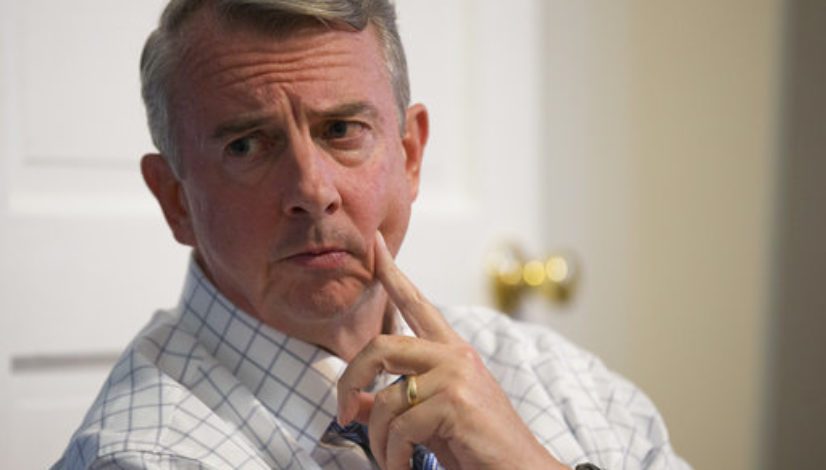Virginia gov candidates take different approaches to weed

Published: Sep 7, 2017, 9:12 am • Updated: Sep 7, 2017, 9:12 am
By Gregory S. Schneider, The Washington Post
RICHMOND, Va. – Republican gubernatorial nominee Ed Gillespie on Wednesday called for criminal justice reform that goes beyond what the GOP-controlled state legislature has so far been willing to embrace, including raising the state’s felony threshold to $500 from $200 and softening marijuana enforcement.
Speaking at a black-owned barbershop and surrounded by a number of local pastors and social workers who deal with people returning to the community from prison, Gillespie said he wants a system that is “just, fair and redeeming. I believe in redemption.”
Gillespie also cast his proposals in economic terms, pointing out that the state spends more than $1 billion a year on incarceration.
While he said he opposes decriminalizing marijuana because it “sends the wrong signal” to young people, Gillespie said he would favor a three-strikes approach for simple possession: The first two arrests would not carry criminal charges, but a third would.
By then, he said, “you really should know better.”
Related stories
- Virginia Republican rep introduces bill to end federal marijuana prohibition
- First-time marijuana offense will no longer mean losing driver’s license in Virginia, if gov signs off
- Majority of Virginia gov candidates support marijuana decriminalization
- Virginia decriminalization bills draw heavy opposition
- Virginia lawmakers say marijuana possession shouldn’t mean loss of driver’s license
The Republican-controlled legislature commissioned a study of decriminalization earlier this year, and Gillespie said he would be interested to see its findings. Gillespie also said he supports “limited, tightly regulated” use of marijuana for treatment of some medical conditions.
His opponent in the governor’s race, Democratic Lt. Gov. Ralph Northam, supports decriminalizing possession of marijuana and legalizing the medical use of marijuana.
Gillespie’s reform plan aligns with Northam’s proposals in other ways: Both favor raising the state’s standard for what constitutes felony larceny. The current level of $200 is among the lowest in the nation, making theft of an iPhone, for example, a felony that can deprive someone of the right to vote.
The state Senate this year unanimously approved a bill to raise that threshold to $500, which is in line with other states, but the measure died – as it has before – in a Republican-controlled House subcommittee.
Gillespie also said he would support finding ways to “functionally end” the practice of suspending driver’s licenses when someone fails to pay court costs and legal fees. Calling it part of a “vicious cycle” that keeps drawing people back into the corrections system, Gillespie said it would make more sense to create payment plans to make it manageable for people to pay off their obligations.
Northam has said he wants to end the practice of seizing a driver’s license for failure to pay such costs.
Restoration of voting rights for convicted felons has been a contentious issue in Virginia since Gov. Terry McAuliffe (D) attempted to automatically restore the rights of hundreds of thousands of felons last year. Republicans sued to block that effort, arguing that the governor could not restore rights en masse, and McAuliffe has been restoring them since on a case-by-case basis.
Gillespie said he would seek to appoint former governors Robert F. McDonnell (R) and L. Douglas Wilder (D) to study the issue and propose a way to standardize the process so that it’s no longer subject to different practices by different governors.
Northam has made restoring felon voting rights a centerpiece of his campaign, and said he would continue McAuliffe’s aggressive approach.
To help get former felons back into the workforce, Gillespie said he would propose that the state pay about $500 so that a business could perform quarterly drug tests to ensure that any former felon it hired stayed clean. He also proposed banning state government from asking job applicants to check a box indicating whether they’ve ever been convicted of a felony but would not move to require the same of private employers.
House Speaker William J. Howell, R-Stafford, attended the news conference and said he was sure the General Assembly would be willing to take up those issues – though Howell is retiring and will not be serving in the legislature next year.
“I think Ed’s plan does a good job of balancing these issues,” Howell said. “The correctional part probably could use some modernization.”
Topics: decriminalization, governor race, Virginia




